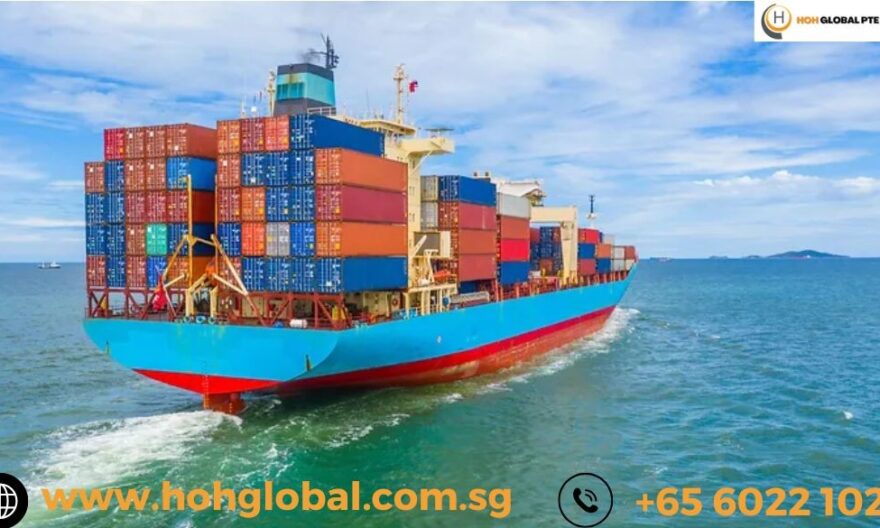
In today’s globalized economy, businesses rely heavily on efficient and cost-effective logistics solutions to transport goods internationally. Sea freight shipping, in combination with professional sea freight forwarder and reliable warehouse storage services, plays a crucial role in ensuring a seamless supply chain. Let’s explore how these components work together to streamline international shipping and storage processes.
What is Sea Freight Shipping?
Sea freight shipping refers to the transportation of goods via cargo ships across international waters. It is the most popular method for shipping large volumes of goods due to its affordability and efficiency. Unlike air freight, sea freight can carry heavy and bulky cargo, making it ideal for businesses dealing with large-scale international trade.
Key benefits of sea freight shipping include:
- Cost-Effectiveness: It is significantly cheaper than air freight, especially for heavy or high-volume shipments.
- Capacity for Large Shipments: Sea freight can accommodate oversized cargo, such as machinery, vehicles, and raw materials.
- Global Reach: Cargo ships connect major ports worldwide, ensuring goods can reach almost any destination.
- Environmentally Friendly: Compared to air transport, sea freight shipping has a lower carbon footprint, making it a greener logistics choice.
Role of Sea Freight Forwarders
A sea freight forwarder acts as an intermediary between businesses and shipping companies, ensuring that goods are transported efficiently from one point to another. Freight forwarders handle the logistics, paperwork, and coordination required for successful sea freight shipping, saving businesses time and effort.
Here’s why partnering with a sea freight forwarder is essential:
- Expertise in Documentation: Sea freight involves complex paperwork, including customs clearance, bills of lading, and shipping regulations. Forwarders simplify this process.
- Cost Optimization: Freight forwarders negotiate rates with shipping lines to secure the most competitive pricing for their clients.
- Logistics Coordination: They manage every aspect of the shipping process, including packaging, container booking, and port operations.
- Risk Management: Forwarders ensure compliance with international shipping standards and handle cargo insurance, minimizing potential risks.
- End-to-End Solutions: Many forwarders offer comprehensive logistics solutions, including warehousing, transportation, and last-mile delivery.
By working with a trusted sea freight forwarder, businesses can focus on their core operations while ensuring smooth and timely delivery of goods.
Importance of Warehouse Storage in Sea Freight Logistics
Warehouse storage plays a vital role in supporting sea freight shipping by providing a secure location to store goods before and after transit. Effective warehouse management ensures that cargo is organized, protected, and readily available for distribution.
Types of warehouse storage solutions include:
- Short-Term Storage: Temporary storage for goods awaiting shipment or immediate distribution.
- Long-Term Storage: Secure, extended storage for goods not needed for immediate delivery.
- Cold Storage: Temperature-controlled facilities for perishable items like food and pharmaceuticals.
- Bulk Storage: Warehousing solutions for oversized, heavy, or unpackaged goods.
- Automated Warehousing: Facilities equipped with robotics and advanced technology for high-volume operations.
For businesses relying on sea freight shipping, warehouse storage offers several advantages:
- Inventory Management: Goods are stored in an organized manner, improving stock visibility and control.
- Cost Savings: Warehousing helps reduce overhead costs by consolidating shipments and minimizing delays.
- Flexibility: Storage solutions can be tailored to meet specific business needs, such as handling fragile or oversized cargo.
- Enhanced Security: Warehouses are equipped with security systems to ensure goods remain safe and protected.
How Sea Freight Forwarders Integrate Shipping and Warehousing
Professional sea freight forwarders often provide integrated solutions, combining sea freight shipping with warehouse storage. This streamlined approach ensures a seamless flow of goods from the point of origin to their final destination.
For instance:
- Storage Before Shipping: Goods can be stored in a warehouse until the shipping date, reducing delays and allowing for better planning.
- Consolidation of Shipments: Freight forwarders consolidate smaller shipments into full-container loads (FCL), optimizing costs and space utilization.
- Storage After Arrival: Upon reaching the destination port, goods can be temporarily stored in warehouses before being distributed.
- Inventory Tracking: Integrated warehouse management systems (WMS) allow businesses to monitor cargo movement in real-time.
By combining sea freight services with warehousing solutions, businesses can ensure efficiency, cost savings, and timely deliveries in their supply chain.
Conclusion
The combination of sea freight shipping, sea freight forwarders, and warehouse storage solutions provides businesses with a reliable, efficient, and cost-effective approach to managing international logistics. Sea freight shipping remains the preferred choice for transporting large volumes of cargo, while forwarders simplify the logistics process by managing paperwork, compliance, and coordination. Meanwhile, warehouse storage ensures that goods are safely stored and readily available for distribution.




